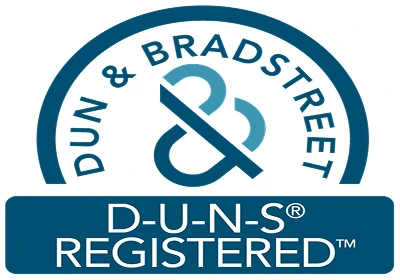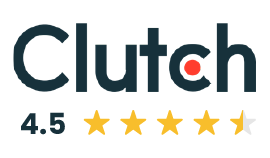Medical Devices Published Insights
Published Date : 09 Feb, 2026
The global dental membranes and bone graft substitutes market has been growing steadily over the past few years. Dental membranes and bone graft substitutes are synthetic or biological products used in dental applications to regenerate lost or damaged bone tissues. Th... View more
Published Date : 09 Feb, 2026
The global orthopedic prosthetic market is estimated to be valued at USD 2.61 Bn in 2025 and is expected to exhibit a CAGR of 5.9% during the forecast period (2025-2032). Orthopedic prosthetics are artificial devices used as a replacement for missing body parts such... View more
Published Date : 09 Feb, 2026
Vitreous tamponades are substances injected into the vitreous cavity of the eye during retinal detachment surgery to stabilize the retina. These help flatten the retina against the inside surface of the eye. Some commonly used vitreous tamponades include silicone oils... View more
Published Date : 09 Feb, 2026
The global respiratory devices market is estimated to be valued at USD 26.22 Bn in 2025 and is expected to exhibit a CAGR of 11% during the forecast period (2025-2032). The global respiratory devices market has been witnessing significant growth in the recent years dr... View more
Published Date : 09 Feb, 2026
Radiopharmaceuticals are radioactive drugs used in nuclear medicine for both diagnostics and therapeutics purposes. These play a crucial role in medical imaging techniques through emission of nuclear radiation such as gamma rays from radioactive tracers introduced int... View more
Published Date : 09 Feb, 2026
Due to rapidly aging population worldwide, there has been huge demand for devices that help senior citizens and people with disabilities to live independently. Assistive devices range from daily living aids to complex medical equipment. Mobility aids like walkers, whe... View more
Published Date : 09 Feb, 2026
Cryoablation is a minimally invasive procedure that uses extreme cold temperatures to destroy diseased or damaged tissue. Cryoablation devices use argon gas or liquid nitrogen to precisely target unwanted tissue and protect surrounding healthy anatomy. With rising inc... View more
Published Date : 09 Feb, 2026
The global remote patient monitoring devices market is estimated to be valued at USD 14.34 Bn in 2025 and is expected to exhibit a CAGR of 15.9% during the forecast period (2025-2032). The remote patient monitoring devices market has witnessed significant growth in th... View more
Published Date : 09 Feb, 2026
Respiratory inhalers are medical devices used for administration of drugs to treat respiratory diseases like asthma and COPD. These help to deliver the required dosage of medication directly to the airways through inhalation. Rising prevalence of respiratory diseases ... View more
Published Date : 09 Feb, 2026
The global varicose vein treatment devices market is estimated to be valued at USD 1,364.1 Mn in 2025 and is expected to exhibit a CAGR of 6.8% during the forecast period (2025-2032). The varicose vein treatment devices market has been witnessing significant growth ov... View more
Published Date : 09 Feb, 2026
Global 3D ultrasound market is estimated to be valued at USD 4.26 Bn in 2025 and is expected to reach USD 7.21 Bn by 2032, exhibiting a compound annual growth rate (CAGR) of 7.8% from 2025 to 2032. Global 3D ultrasound market has been witnessing steady growth in t... View more
Published Date : 09 Feb, 2026
The global refractive surgery market is estimated to be valued at USD 253.3 Mn in 2025 and is expected to reach USD 475.3 Mn by 2032, exhibiting a compound annual growth rate (CAGR) of 9.4% from 2025 to 2032. Refractive surgery refers to a group of surgical proced... View more
Published Date : 09 Feb, 2026
The global sentinel node biopsy market is estimated to be valued at USD 806.3 Mn in 2025 and is expected to reach USD 1,312.7 Mn by 2032, exhibiting a compound annual growth rate (CAGR) of 7.2% from 2025 to 2032. Sentinel lymph node biopsy is an important procedure fo... View more
Published Date : 09 Feb, 2026
Global sleep tech devices market is estimated to be valued at USD 23.32 Bn in 2025 and is expected to exhibit a CAGR of 16.7% during the forecast period (2025-2032).The sleep tech devices market has been witnessing steady growth over the past few years owing to increa... View more
Published Date : 09 Feb, 2026
The ambulatory electrocardiography market is estimated to be valued at USD 748.8 Mn in 2025 and is expected to reach USD 1,326.4 Mn by 2032, exhibiting a compound annual growth rate (CAGR) of 8.5% from 2025 to 2032. Ambulatory electrocardiography, commonly known a... View more
Published Date : 09 Feb, 2026
Global body fat measurement market is estimated to be valued at USD 803.1 Mn in 2025 and is expected to exhibit a CAGR of 6.9% during the forecast period (2025-2032). The body fat measurement market has been growing steadily over the past few years due to the rising... View more
Published Date : 09 Feb, 2026
Global platelet aggregation devices market is estimated to be valued at USD 653.4 Mn in 2025 and is expected to exhibit a CAGR of 6.8% during the forecast period (2025-2032). Platelet aggregation devices are used in clinical settings to aid in diagnosis of platelet ... View more
Published Date : 09 Feb, 2026
Global percutaneous transluminal angioplasty balloons catheters market is estimated to be valued at USD 1.99 Bn in 2025, and is expected to exhibit a CAGR of 9.3% during the forecast period (2025-2032). Percutaneous transluminal angioplasty (PTA) balloons catheters ar... View more





